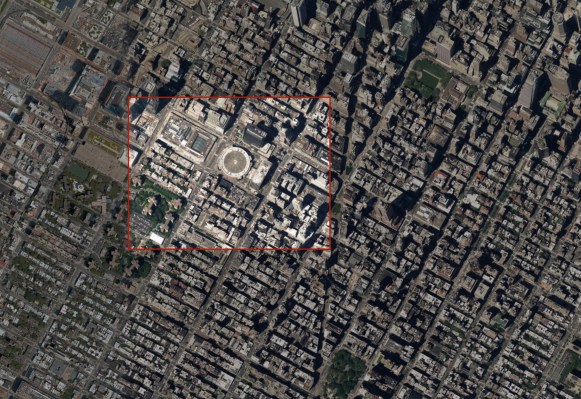A group of more than 40 Democratic members of Congress has urged Google to stop collecting and retaining “unnecessary” location data over fears it could be used to identify people seeking abortions.
The letter was sent to Sundar Pichai, chief executive of Google’s parent company Alphabet, ahead of the anticipated reversal of Roe v. Wade, the landmark 1973 legal case that guaranteed a person’s constitutional right to abortion. If repealed, individual states would be able to decide whether to heavily regulate or ban the medical procedure, sparking fears that location data or search histories could be used against people seeking abortions or those who offer them in states where they are illegal to obtain.
Google, specifically, stores “historical location information about hundreds of millions of smartphone users,” the letter notes, “which it routinely shares with government agencies.”
In 2020, Google received 11,554 geofence warrants — also known as “reverse location” warrants — a type of court order that requires the company to turn over data from users in a certain geographic location at a particular time. The majority of these requests came from state and local authorities.
Read more
While it’s unclear how many of those requests Google has cooperated with, the letter urges Google to rethink its current practice of “collecting and retaining extensive records of cell phone location data,” warning it could become a tool for “far-right extremists looking to crack down on people seeking reproductive health care.”
“That’s because Google stores historical location information about hundreds of millions of smartphone users, which it routinely shares with government agencies,” wrote the Democrat lawmakers, led by Sen. Ron Wyden (D-OR) and Rep. Anna Eshoo (D-CA).
“While Google deserves credit for being one of the first companies in America to insist on a warrant before disclosing location data to law enforcement, that is not enough. The only way to protect your customers’ location data from such outrageous government surveillance is to not keep it in the first place,” the letter said.
TechCrunch contacted Google for comment but we have yet to hear back.
Geofence warrants have been the subject of controversy for some time. TechCrunch reported last year that Minneapolis police used a geofence warrant to identify protesters accused of sparking violence in the wake of the police killing of George Floyd in 2020, and there was also the case of a Florida man being wrongfully arrested in 2019 after riding his bike past the scene of a burglary.
New York could soon become the first U.S. state to ban law enforcement from using geofence warrants after the Reverse Location Search Prohibition Act, first introduced two years ago, was last week referred to committee, the first major hurdle before it can be considered for a floor vote. Tech companies, including Google, have come out in support of the state bill.
